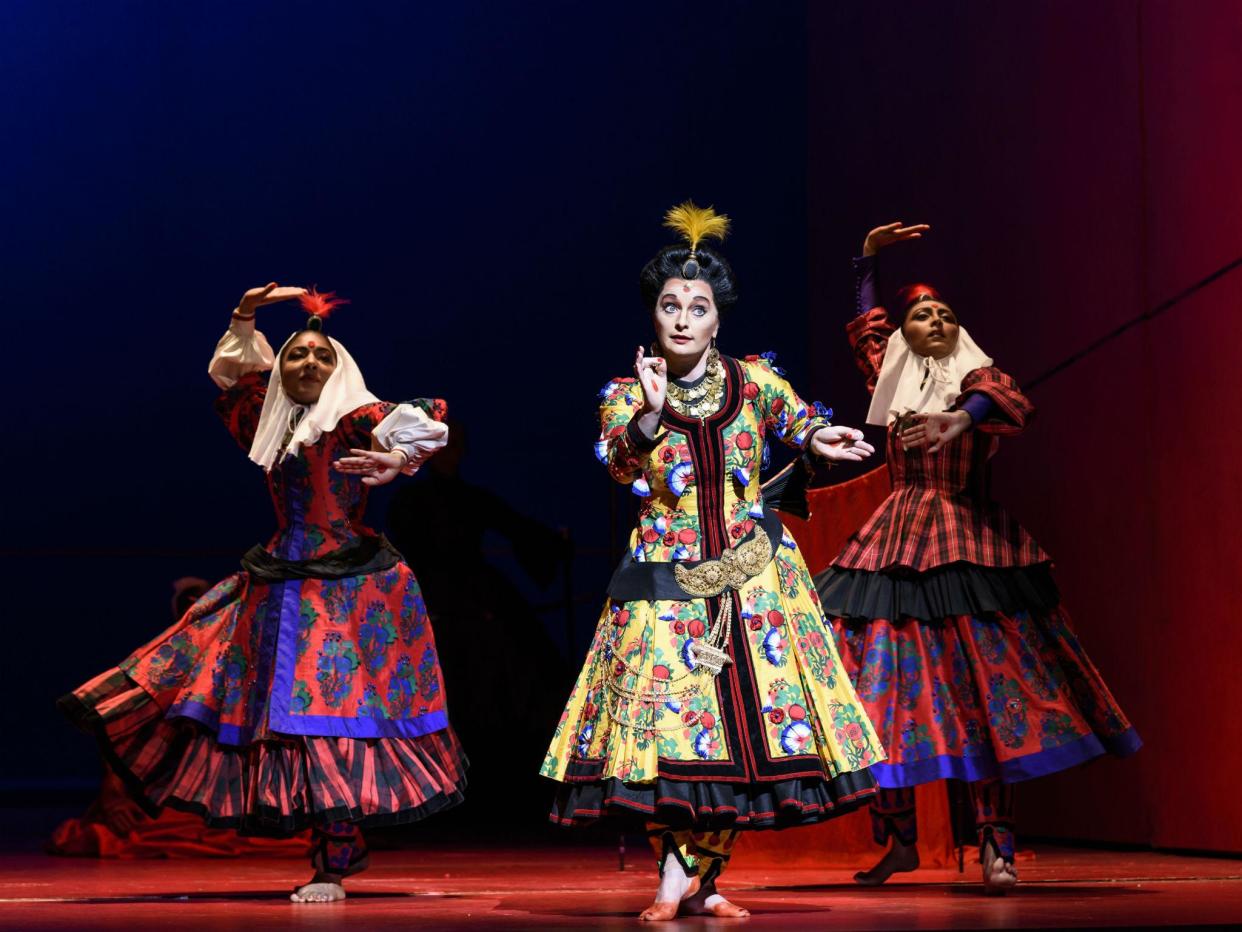Mitridate, re di Ponto, Royal Opera House, London, review: Lucy Crowe, as Ismene, brings down the house with a soprano artistry beyond compare

Nobody ever talks about Graham Vick’s 26-year-old production of Mitridate, re di Ponto – it seemed to have sunk without trace – but Covent Garden’s revival is a reminder of how stunningly original it was, and still is. Mozart composed this work when he was 14, and had to endure endless interference from singers who wanted ever more showy arias, but as it progresses you can sense him finding his true voice.
The plot unfolds on the shores of the Black Sea around 60BC, and turns on the fact that King Mitridate’s sons - the noble Sifare (here sung by Salome Jicia) and the treacherous Farnace (Bejun Mehta) - are both in love with his betrothed, Aspasia (Albina Shagimuratova). The rudimentary characterisation is geared to the required happy ending; the whole work is about emotional effect – as is the staging.
Vick and his designer Paul Brown - plus lighting designer Nick Chelton and choreographer Ron Howell - create a feast for the eye, with extravagantly panniered and hoop-skirted figures moving in slow motion through an abstract environment of glowing reds, blues, and yellows. The hieratic choreography has echoes of Japanese Noh and Javanese shadow-puppetry, with one character – the Parthian princess Ismene (Lucy Crowe) - moving like an Indian temple dancer. It’s all gently surreal, and absolutely mesmerising.
And we get singing of an exceptional order. Georgian soprano Salome Jicia’s Sifare is delivered with mercurial grace, while countertenor Bejun Mehta’s Farnace has a beguiling richness and subtlety of sound. Albina Shagimuratova took a while to settle into her part on the first night, but gave a ravishing aria at her character’s moment of despair. Tenor Michael Spyres sings the title role with expressive warmth and phenomenal vocal agility, while Lucy Crowe, as Ismene, brings down the house with a soprano artistry beyond compare. Christophe Rousset’s conducting and continuo-playing is juste a point.

 Yahoo News
Yahoo News 
